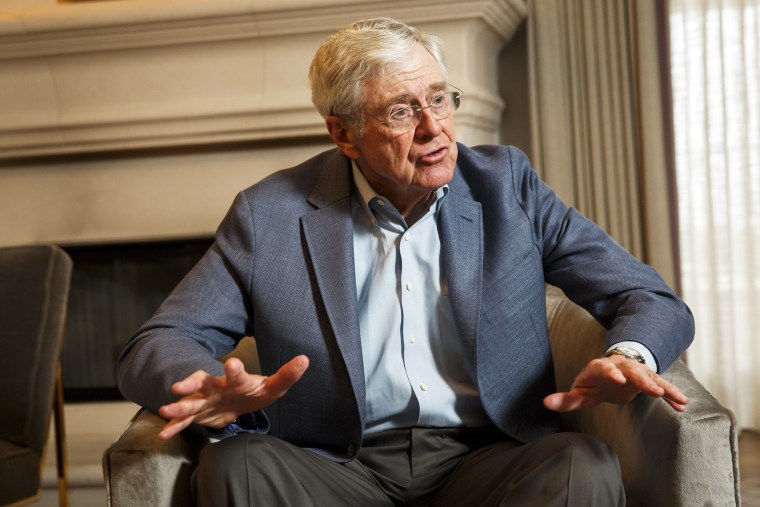A majority of the justices on the Supreme Court seemed inclined Monday to rule for conservative groups that don't want to tell state regulators the names of their biggest donors for fear of chilling contributions.
Americans for Prosperity, supported by the billionaire industrialist Charles Koch and his late brother, David, along with the Thomas More Law Center, a conservative Christian legal organization, asked the court to rule that a California disclosure requirement violates their First Amendment rights and exposes top donors to intimidation or attack, making them reluctant to contribute.
"Forty-six other states police charities with no such demand," their lawyer, Derek Shaffer, said during oral argument conducted by telephone conference call. "And California has used the data in only a handful of investigations over the past 10 years."
The two groups are challenging a law requiring charities to file reports every year, including a copy of an IRS document listing the names and addresses of their top contributors. The state gathers the information to help detect the use of charities to commit financial fraud.
The filings are supposed to be kept confidential, but some of them ended up being posted online — inadvertently, according to the state.
Several of the court's conservatives seemed sympathetic to the claim by the challengers that disclosure might affect donations.
"An organization that has certain views might be accused of being a white supremacist organization or racist, or homophobic, something like that, and as a result become quite controversial," Justice Clarence Thomas said.
Lawyers for California said the state has tightened up its rules for handling donor information, making it unlikely the data would be made public in the future.
But Justice Samuel Alito wondered how a charity could seek an exemption from the reporting requirement if it nonetheless feared disclosure. "Does every nonprofit have to sue and fight the state tooth and nail for years?"
The Supreme Court has confronted this issue before. In 1958, it struck down an Alabama law requiring the NAACP to disclose the names of its members in the state. The court said the measure would expose them "to economic reprisal, loss of employment, threat of physical coercion, and other manifestations of public hostility."
Those concerns outweighed the state's interest in enforcing its corporate designation laws, the ruling said.
In the current case, California said the reporting requirement is an important tool in detecting fraud and the claims of a chilling effect on donors largely amount to speculation.
Aimee Athena Feinberg, the state's acting solicitor general, said many charities welcome the reporting requirement, because it shows that the state is serious about combating fraud and enhances public confidence in making contributions.
The two conservative groups have attracted a wide range of supporters for their position. The Chamber of Commerce and the National Taxpayers Union Foundation are among those filing friend-of-court briefs on their side. But so are the American Civil Liberties Union, the Electronic Frontier Foundation and the Committee on American-Islamic Relations.
Justice Brett Kavanaugh called that "an impressive array of briefs supporting the petitioners across the ideological spectrum."
Advocates of controls on the money spent in political campaigns urged the court not to use this case to tamper with the separate federal disclosure requirements for campaign contributors. In the past, the court has said any concern about exposing political contributors is outweighed by the government's interest in enforcing campaign finance laws.
Three Democrats urged the court's newest member, Justice Amy Coney Barrett, to take herself out of making any decisions about the case, given that the Americans for Prosperity Foundation funded a public campaign in support of her nomination. "Statute, constitutional case law, and common sense would seem to require your recusal," said a letter signed by Sens. Richard Blumenthal of Connecticut and Sheldon Whitehouse of Rhode Island and Rep. Hank Johnson of Georgia.
The groups involved in the cases have not formally asked her to recuse, and she participated fully during Monday's oral argument.
The court will decide the case by late June.

